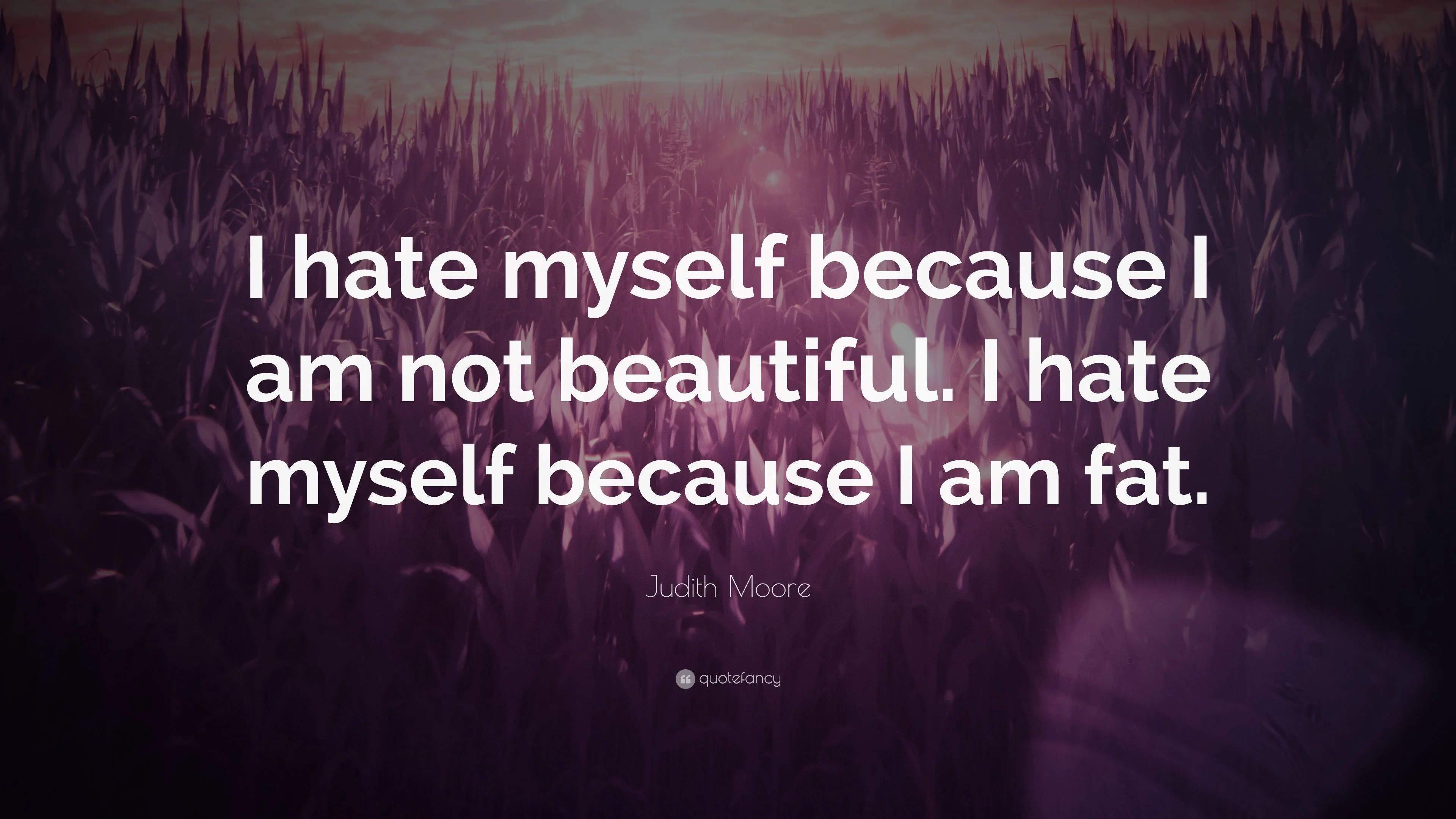Feeling overwhelmed by self-hatred can be a daunting experience, and if you find yourself saying “I hate myself,” you’re not alone. Many individuals struggle with negative self-perception at various points in their lives. Understanding the root causes of these feelings and exploring constructive ways to cope can pave the way for healing and self-acceptance. In this article, we will delve into the reasons behind self-hatred, practical steps you can take to combat these feelings, and resources available to support you on your journey toward self-love.
It’s crucial to recognize that self-hatred often stems from a combination of factors, including past experiences, societal pressures, and mental health conditions. By identifying these influences, we can begin to dismantle the negative beliefs we hold about ourselves. This article aims to empower you with knowledge and actionable strategies to foster a healthier self-image.
Moreover, it’s essential to approach this topic with care, as self-hatred can significantly impact your mental health and overall well-being. If you ever feel overwhelmed, seeking help from professionals can be a vital step. Let’s explore the complexities of self-hatred and how you can turn this feeling around.
Table of Contents
- Understanding Self-Hatred
- Causes of Self-Hatred
- Impact on Mental Health
- Steps to Overcome Self-Hatred
- Practical Strategies for Self-Love
- When to Seek Help
- Resources and Support
- Conclusion
Understanding Self-Hatred
Self-hatred is a complex emotional experience characterized by feelings of worthlessness, inadequacy, and self-loathing. It can manifest in various ways, from negative self-talk to self-destructive behaviors. Understanding the dynamics of self-hatred is the first step toward overcoming it.
Defining Self-Hatred
Self-hatred often involves a deep-seated belief that one is fundamentally flawed or unworthy. This perception may be influenced by external factors such as societal standards of success, beauty, or intelligence. Over time, these beliefs can create a cycle of negativity that becomes deeply ingrained in an individual's psyche.
Recognizing the Signs
Recognizing the signs of self-hatred is crucial for taking action. Common indicators include:
- Persistent negative self-talk
- Avoidance of social situations
- Engagement in self-destructive behaviors
- Feelings of shame or guilt
Causes of Self-Hatred
Understanding the root causes of self-hatred can help individuals address and dismantle these negative beliefs. Here are some common contributors:
Childhood Experiences
Many individuals develop self-hatred as a result of negative experiences during childhood, such as:
- Emotional or physical abuse
- Neglect or lack of support
- Criticism from parents or peers
Societal Pressures
Society often sets unrealistic standards for success, beauty, and behavior. The pressure to conform to these standards can lead to feelings of inadequacy. Social media, in particular, can exacerbate these feelings by presenting curated and often unrealistic portrayals of life.
Impact on Mental Health
Self-hatred can have serious implications for mental health, leading to conditions such as:
- Depression
- Anxiety disorders
- Eating disorders
- Substance abuse
Understanding this impact highlights the importance of addressing self-hatred as a crucial component of mental health care.
Steps to Overcome Self-Hatred
Overcoming self-hatred is a journey that requires time, patience, and effort. Here are some essential steps to help you on this path:
1. Acknowledge Your Feelings
The first step in overcoming self-hatred is to acknowledge your feelings without judgment. Allow yourself to feel and express your emotions, whether through journaling, art, or talking to a trusted friend.
2. Challenge Negative Thoughts
Work on recognizing and challenging negative thoughts. Ask yourself:
- Is this thought based on fact or assumption?
- Would I say this to a friend?
- What evidence do I have to support this thought?
Practical Strategies for Self-Love
Incorporating practical strategies into your daily routine can foster self-love and combat feelings of self-hatred:
1. Practice Self-Compassion
Treat yourself with the same kindness and understanding you would offer a friend. Self-compassion involves recognizing that it’s okay to be imperfect and that everyone experiences struggles.
2. Engage in Positive Affirmations
Start each day with positive affirmations. Repeat statements that reinforce your worth and value, such as:
- I am worthy of love and respect.
- I am enough just as I am.
- I have the power to change my narrative.
When to Seek Help
If feelings of self-hatred persist or intensify, it may be time to seek professional help. A mental health professional can provide guidance, support, and coping strategies tailored to your needs.
Resources and Support
There are numerous resources available for individuals struggling with self-hatred:
- National Suicide Prevention Lifeline: 1-800-273-TALK (8255)
- Crisis Text Line: Text “HELLO” to 741741
- Therapists and counselors specializing in self-esteem and self-worth issues
Conclusion
In conclusion, self-hatred is a challenging battle, but it is one that can be fought. By understanding the root causes, recognizing the signs, and implementing practical strategies, you can begin to shift your mindset toward self-acceptance and love. Remember, seeking help is a sign of strength, and you don’t have to navigate this journey alone.
If you found this article helpful, please consider leaving a comment, sharing your experiences, or exploring other articles on our site that may resonate with you.
Embrace the journey of self-discovery and healing, and remember that you are deserving of love and happiness.
Article Recommendations
- Uncovering The True Age Of Playboi Carti
- Rachel Reynolds Salary 2023 Earnings Revealed
- Colonel Sanders Net Worth A Deep Dive Into The Kentucky Fried Legends Fortune


/i-hate-myself-ways-to-combat-self-hatred-5094676-a9afa54a8c4744a69171c8c6b7c6a8d7.png)